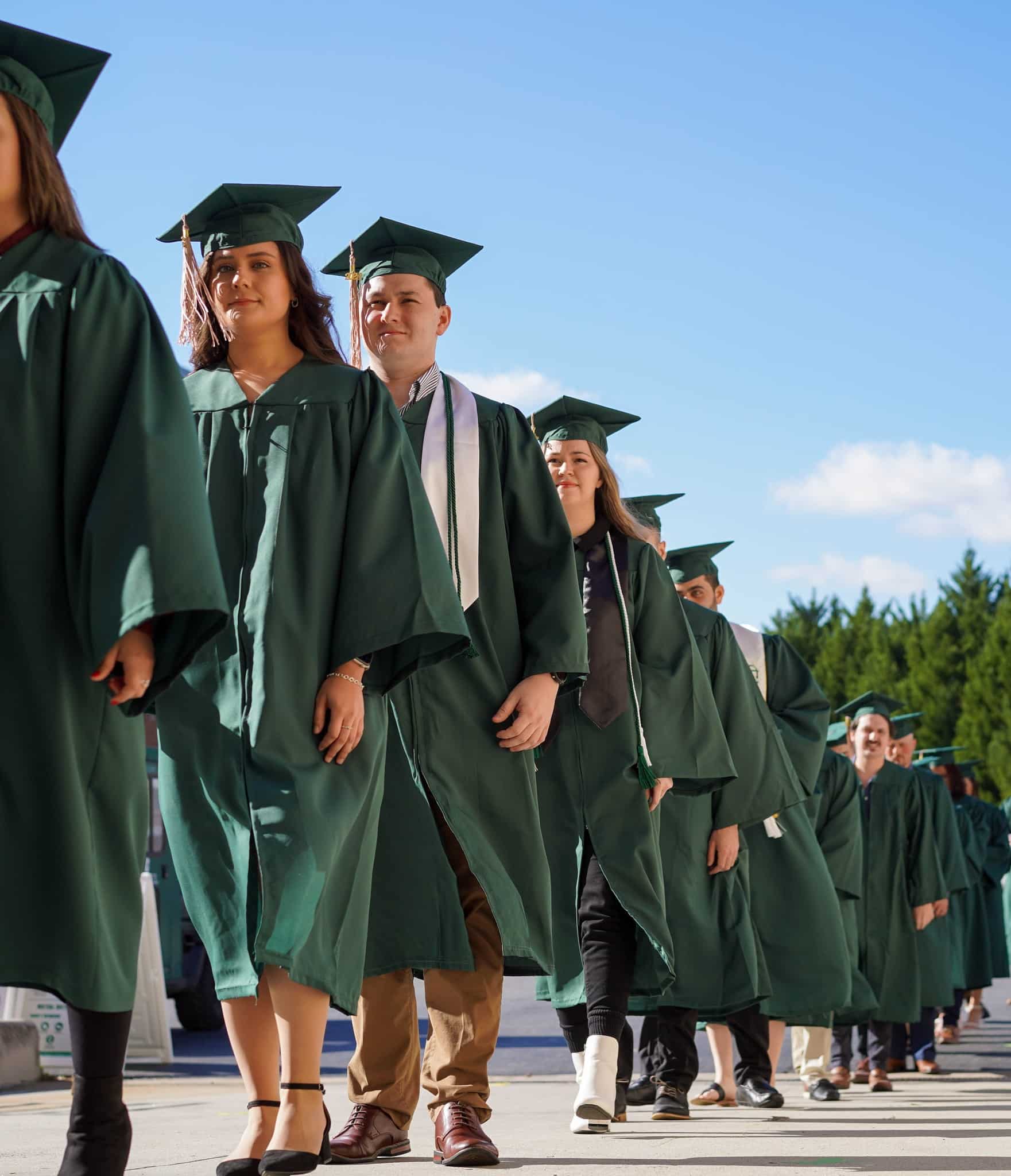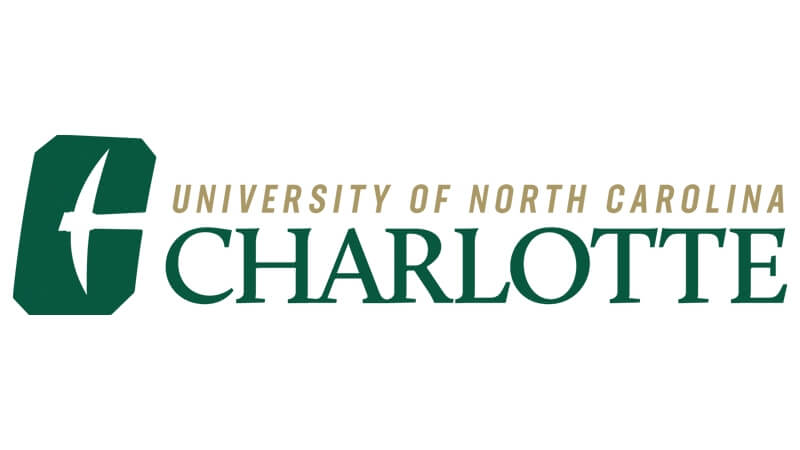Robert Logan Garris was an undergraduate student at the University of North Carolina at Charlotte (UNC Charlotte) when the opportunity to pursue an MS in Applied Energy and Electromechanical Engineering (AEEE) came knocking.
“I chose this programme because I was already involved with the professors and had the opportunity to step into a research role while attending my master’s,” he says. “I also felt like the programme would be beneficial in my engineering career as I had [an] interest in working in the energy industry.”
Garris would go on to complete a thesis on the control of electro-sprayed dielectric fluid – an experience that taught him more than just the subject matter. “During my research, I was able to learn different skills, including organisation, time management, public speaking, and technical writing,” he says.
Today, the AEEE graduate is a consultant for multiple Siemens facilities that manufacture combustion burners, casted base, and casted vane components for large gas turbines. Garris also worked as a manufacturing engineer, a senior product development engineer, and a self-employed consultant in advanced manufacturing processes.
He’s part of the legions of UNC Charlotte engineering graduates who land jobs soon after graduation. Alzarrio Rolle is another successful AEEE graduate. “Immediately after graduating with an MS in AEEE, I was able to land a job working for an engineering/manufacturing firm. I also garnered the interest of several other companies regarding my resume and, more specifically, wanting to discuss my knowledge related to the MS in AEEE,” Rolle shares.
Experiential learning with an international student community
Graduates like Garris and Rolle credit their professional success to UNC Charlotte. Specifically, how programmes here emphasise career readiness.
Walk into any classroom or lab and it’s clear how experiential learning experiences bring modules to life. Here, advanced coursework and research incorporate high-impact learning practices based on real-world engineering scenarios that are common today and will emerge tomorrow.
Students have all the space and support they need for such innovative teaching and learning at the Sheldon P. Smith Building. They have 58,700 square feet of usable classrooms, laboratories, and office spaces for educational, research and development activities. Those working on their thesis can benefit from the laboratory support services available. These include electronics, mechanical and machine shops provided by three full-time skilled technicians or laboratory managers and faculty associates with laboratory responsibilities.
“I worked as a research assistant, which involved a lot of experiential learning opportunities, and it was extremely valuable for me and I highly recommend it if you are planning on entering the R&D field,” says Casey Nichols, an AEEE graduate.
Nichols came to UNC Charlotte to learn how to contribute meaningfully to the effort to reverse climate change. And he did. In classes like System Dynamics, he saw the power of cross-disciplinary action. “It allowed us to understand complex cross-cutting energy technologies which require knowledge and experience with mechanical and electrical engineering,” he says.
Today, he’s a research engineer at the National Renewable Energy Laboratory. “I am working on advancing wave and tidal energy technologies to take advantage of an abundant supply of renewable energy the ocean has to offer,” he says. “I work in the cross-cutting space of experimental design and validation which requires employing mechanical and electrical engineering practices to advance the state of the art in marine energy.”

Students get the opportunity to experience the National Renewable Energy Laboratory in Boulder, Colorado Source: UNC Charlotte
Diverse career opportunities
Anything is possible with the guidance of experienced professors in the AEEE programme. “By far, my two favourites in the programme were Dr. Wesley Williams and Dr. Maciej Noras,” says Rolle. “I conducted a thesis under the supervision of these professors. Therefore, I had more interactions with these professors as compared to the typical student.” These professors are still listed as Rolle’s references and the AEEE graduate still regularly talks with them.
The William States Lee College of Engineering is accredited by the North Carolina Board of Examiners for Engineers and Surveyors. This means graduates are eligible to take the professional engineering exam in Northern Carolina.
For many international students, this is a plus. Being able to remain in Charlotte, North Carolina is another bonus. There are nine Fortune 500 companies headquartered in the state’s largest and most dynamic city. From 2016 to 2026, there are close to 140,000 new engineering jobs to be created in the US, according to data from the US Bureau of Labour Statistics.
Thanks to their programme’s STEM designation, international students can apply knowledge gained in their degree programme to off-campus work in their field of study for up to three years in the US.
Dhawal Joshi from India, who joined the AEEE programme to advance his knowledge, has also found a new future in the US. “I got hired as an engineer at an energy consulting firm based in California,” he says. “I experienced tremendous growth personally and professionally during my two years at UNC Charlotte.”
Empower your own career
Due to popularity, the Applied Energy and Electromechanical Engineering program has opened additional spots for Fall 23. Admission is on a rolling basis, so don’t delay on submitting your application to join this amazing gateway to a solid career at UNC Charlotte.
Follow UNC Charlotte on Facebook, Instagram, Twitter, YouTube and LinkedIn.











